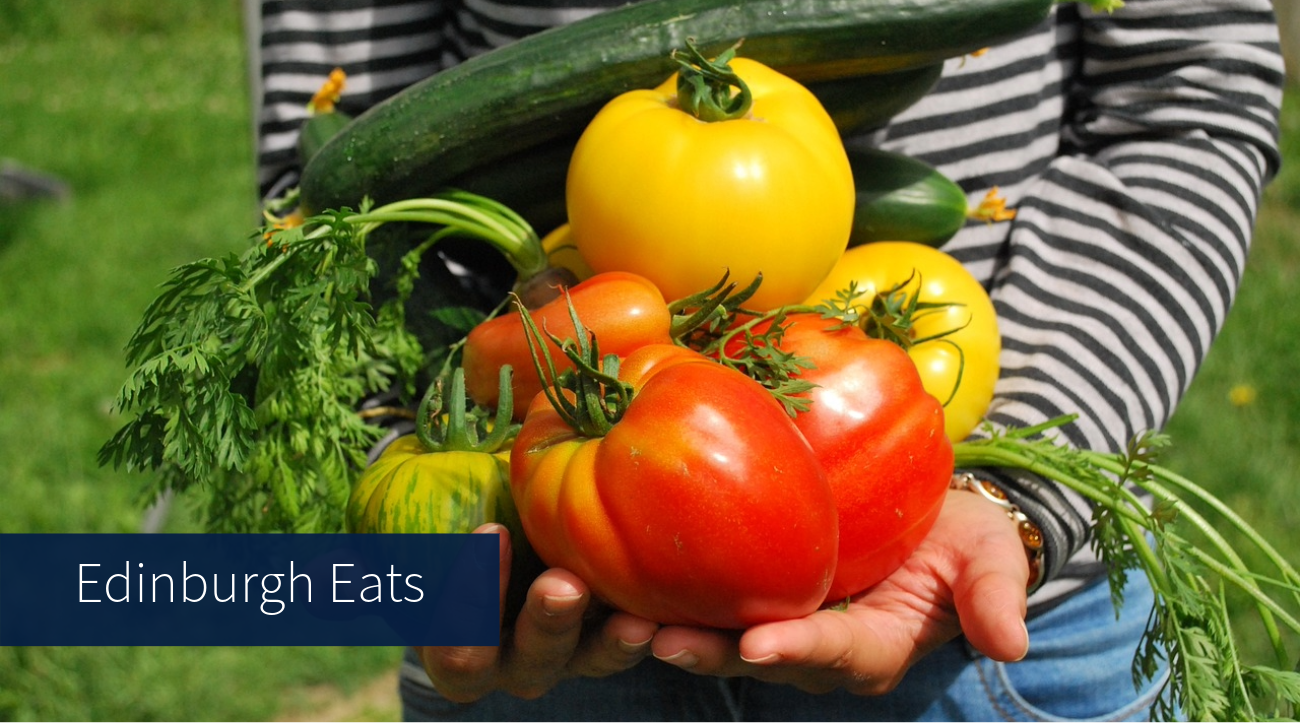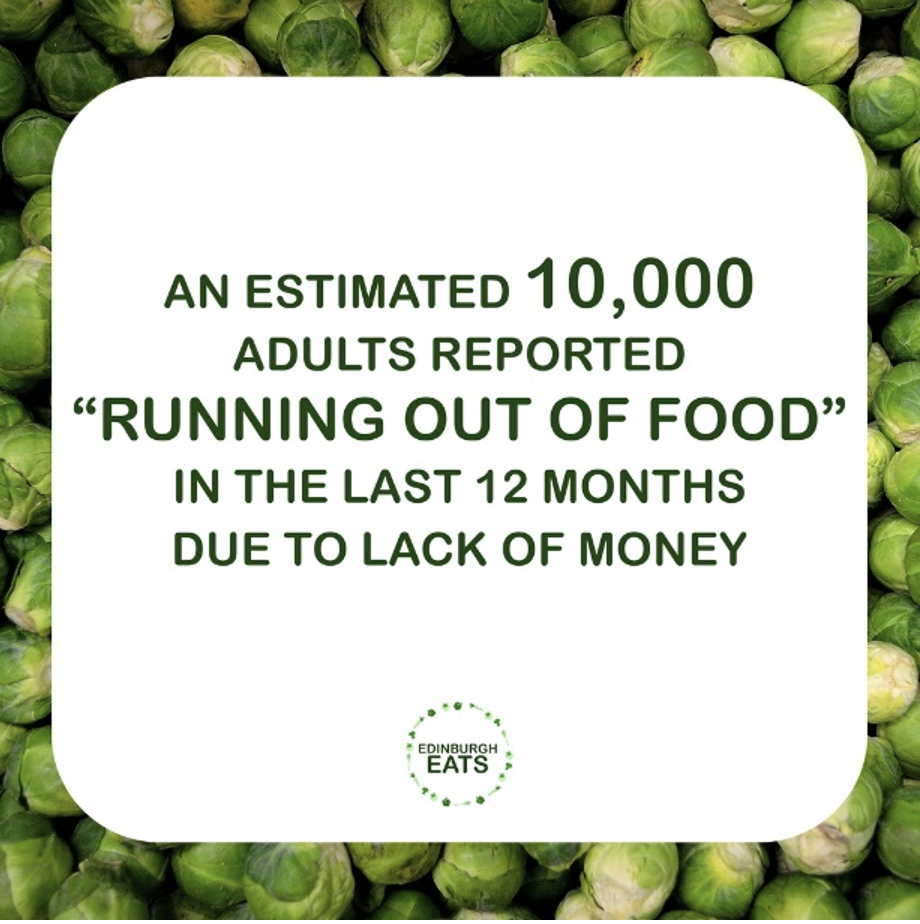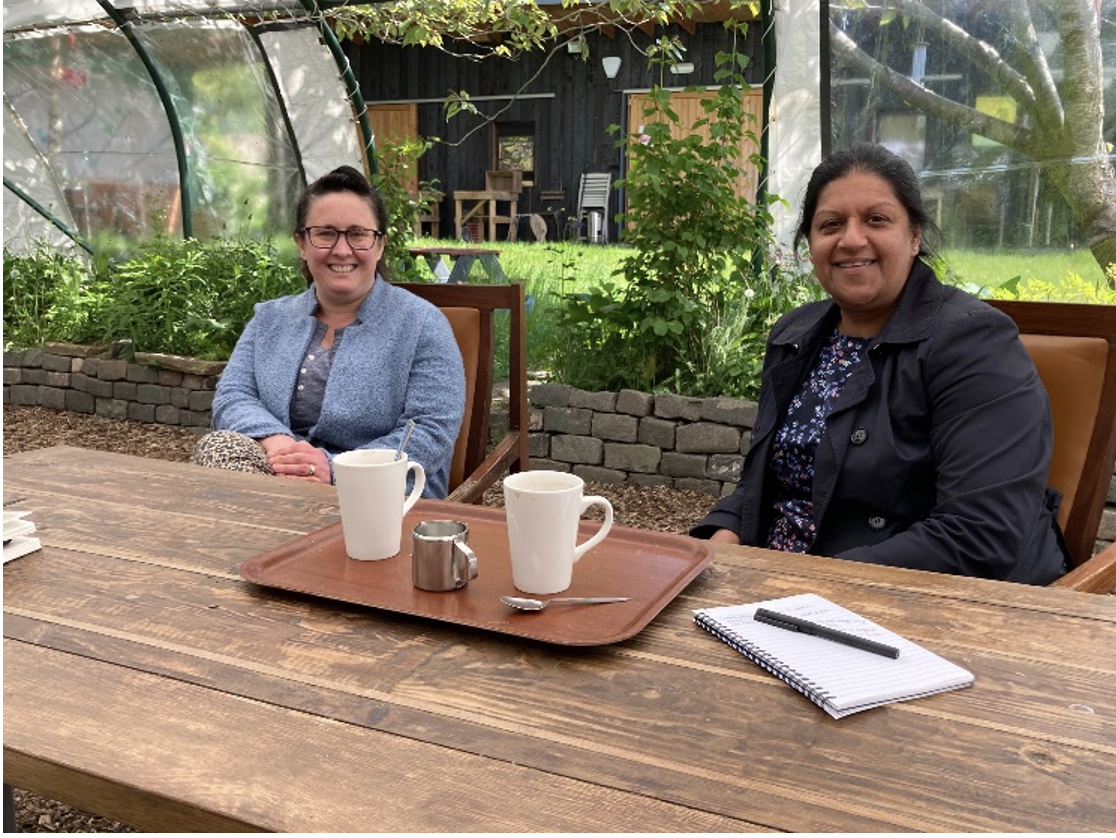Edinburgh Eats

Edinburgh Eats was a proof-of-concept project about a new recipe box scheme designed to help people in food poverty.
 The concept
The concept
The idea for the project came from hands-on experience and partnerships built during the emergency food response during the first Covid-19 lockdown. Kirsteen Shields, the project’s principal investigator (and Lecturer in International Law and Food Security at the University), volunteered in the Cyrenians Fareshare food warehouse in Leith.
Edinburgh Eats co-investigator, Michelle Brown (Department for Social Responsibility and Sustainability) volunteered alongside Kirsteen. Sarah Anderson, the project’s other co-investigator, managed the University’s Covid-19 community micro-grants as part of her role in the Department for Social Responsibility and Sustainability and saw the volume of crisis food projects needing support.
An ethical and environmentally sustainable recipe box
The project investigators’ learning from the first lockdown created a project team with a desire to create a new recipe box scheme which is both ethically and environmentally sustainable. Existing schemes focus on convenience as the unique selling point. This scheme would be different by integrating components that address inequalities (through pay-it-forward and/or sliding scale pay options), education (linking the recipe boxes with how-to videos featuring local people alongside traditional written recipes) and sustainability (by using local produce, by packing and shipping locally, and by reducing food waste).
Crucial to achieving Edinburgh Eats’ aims was involvement of Stephen Gilmore, Professor in the School of Informatics. Stephen and two of his students developed a prototype database and app to enable smart use of locally available ingredients and to theoretically enable people to order a recipe box. The idea was that the database could store recipes and ingredients which synced, ensuring creative recipes using what is actually available.

The Edinburgh Eats team were committed to the ensuring the scheme upheld the three pillars of Edinburgh’s Food for Good coalition: community, dignity and sustainability. Key to ensuring dignity was to offer the same recipe box to everyone – both paying customers and recipients of free boxes. The aim was also to create ‘Covid-proof’ jobs for food sector workers: no in-person customer contact was required for the recipe box service to work.
The Food For Good Coalition – The Scots Magazine
Building back better
The project was funded by the Data Driven Innovation programme’s ‘Building Back Better’ Open Call. The Edinburgh Eats project ran from March until July 2021 and looked into whether such a scheme was viable. (The project was originally called ‘Eco Eats’, until the project team realised there was a service of the same name in St Andrews!)
DDI ‘Building Back Better’ Open Call Awards – DDI
The people and partners who have worked on the proof-of-concept project include:
- Bridgend Community Farmhouse
- Department for Social Responsibility and Sustainability
- Edinburgh Community Food
- Edinburgh Food Security and Sustainability Society
- Edinburgh Food Social
- Global Academy of Agriculture and Food Security
- School of Informatics
- We Are Pop [Welcome to POP (we-are-pop.co.uk)]
The project team was also lucky enough to receive expert input from local community food experts (e.g. Sikh Sanjog) and University staff who took a special interest in the concept.
Early surveys of local food producers and the University’s staff community ascertained good interest in the Edinburgh Eats concept. The project created four casual paid posts for recent University graduates and staff who had come to the end of fixed-term contracts; three students were also directly engaged and paid for their involvement. A draft business plan was created as the main output from the project, along with recipes and videos, that organisations and individuals involved with the project can draw on for their future work.





Recent comments